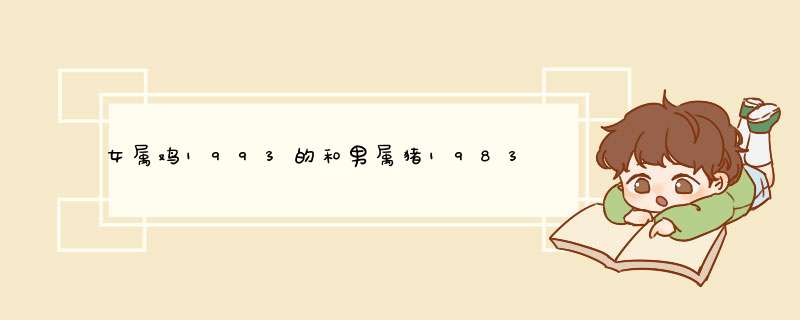
英语动词不定式完成式在使用语境中的学习与考查 江苏省沛县湖西中学 鹿俊先 221611 综观近年的英语高考试题,我们可以看到题目的设置往往强调语言知识在特定语境中的使用,把语言知识放在了语用层面上,即考察实际应用知识的能力。 英语动词不定式的完成式,即(to) have +动词的过去分词形式,是中学英语学习中的重点及难点知识之一,也是高考试题中频繁出现的形式。对于这一形式考查的题目设置通常围绕三类语境,即陈述已经发生过了的事实,推测可能已经发生过了的事实,表达与过去实际情况相反的事实。下面分别加以叙述,以便从语用角度掌握这一语言知识。 1陈述已经发生过了的事实。 11置于表示情感反应的动词、形容词、分词之后,作为引起该反应的刺激,表示情感反应之前完成的动作。例如: I'm sorry to have given you so much trouble (=I'm sorry that I gave / have given you so much trouble) It is good to have finished work for the day (=I am pleased because I have finished) She said she was sorry to have missed you (=She said she was sorry that he had missed you) There was a smile on the boy's face, which seemed to show that he was happy to have given his life to his country (=…he was happy that he had given his life to his country) 12置于be said, be considered, be believed, seem, appear, happen, turn out,等之后表示这些动作之前完成的动作。例如: I don't know whether you happen to have heard, but I am going to study in the USA this September Charles Babbage is generally considered to have invented the first computer (=It is generally considered that Charles Babbage invented the first computer) He is said to have studied abroad, but I don't know which country he studied in (= It is said that he studied abroad, but…) I appear to have made a small mistake (=It appears that I made / have made a small mistake) He seems to have missed the train (=It seems that he missed the train) 13置于should之后,表达说话人对已发生了的事实的情感的反应,如惊奇、遗憾、喜悦、不安、失望,等,should相当于汉语中的“竟然”,“居然”。例如: They were surprised (that) a child should have worked out the problem while they themselves couldn't It is strange that she should have married such an old man 2推测可能已经发生过了的事实。 21置于must, will, would, can't, couldn't 之后,表示很有把握的推论。例如: The city must have been prosperous, for it enjoyed a high level of civilization An ambulance is waiting in the street Somebody must have been hurt or killed --I met her soon after the war 2 --Oh, yes That will / would have been around March 1946, I suppose Jack can't have arrived yet; otherwise he would have telephoned me --There were already five people in the car but they managed to take me as well --It couldn't have been a comfortable journey He must have completed his work; otherwise, he wouldn’t be enjoying himself by the seaside 22置于should, shouldn't, ought to, oughtn't to之后,表示较有把握的推测。通常意义为:正常情况/如无意外应该或不该已经……。例如: He set off an hour ago He ought to / should have arrived home by now Everything had been carefully prepared, and there shouldn't / oughtn't have been any problems, I think 23置于could, may, might之后,表示不太有把握的猜测。例如: He could / may / might have been at home yesterday, but I am not sure --Polly’s very late --He may / might have missed her train --What do you think that noise was --It might have been a cat 24与can, could结合用于疑问句,询问是否有可能发生了某事。例如: Where can /could he have gone It’s so late at night I can’t find John in the school Can he have gone home My English-Chinese dictionary has disappeared Who could have taken it 3表达与过去实际情况相反的事实。 31置于should, ought to, shouldn't, oughtn't to, could, might, needn't之后,表示应该做的事未做,不该做的事做了;可以做的事未做,不必做的事做了。使用于指责、抱怨等场合,可分别译为“本应该……”, “本不该……”,“本可以……”,“本不必……”等。例如: I was really anxious about you You shouldn't have left home without a word I told Sally how to get here, but perhaps I should have written it out for her --I stayed at a hotel while in New York --Oh, did you You could / might have stayed with Babara" There was a lot of fun at yesterday's party You ought to have come, but why didn't you There was plenty of time You needn't have so hurried Tom ought not to have told me your secret, but he meant no harm He might / could have given you more help, even though he was very busy You might / could have told me you were coming 32置于表示希望、意图意义的动词或动词词组的过去式(如:hoped, planned, expected, intended, meant, would like, were / was to)之后,表达落空了的希望、未实现的意图。可分别译为“本希望……”、“本打算……”、“本想……”。例如: I meant to have telephoned, but I forgot He was to have been the new ambassador, but he fell ill I'd like to have seen his face when he opened the letter 33句子中含有假设条件从句或上下文暗示了假设条件时,置于would, 3 should, might, could, ought to 之后,表达与已发生的客观事实不一致的结果。不含情态意义时would用于所有人称,should仅用于第一人称。而would, should, might, could, ought to可以含有其本身的情态意义。例如: Yesterday, Jane walked away from the discussion Otherwise she might have said something she would regret later If I had worked hard at school, I should / would have got a better job If it hadn't been for the rain, we should / would have had a good harvest Had the management acted sooner, the strike couldn't / wouldn't have happened If he had known the facts, he could / might have told us what to do If he had received a present, he should have thanked her If Bob had started at nine o’clock, he ought to have been in London by eleven o’clock 34置于could, might之后,表示虽然动作并未发生,但现在看来当时存在发生的可能。该句型可看作因不言而寓而无须明示假设条件从句的形式。例如: You were crazy to ski down there -- you might / could have killed yourself (if you had not been lucky) You shouldn't have thrown that bottle out of the window You could / might have injured someone (if he or she had just been walking under it) The presents he received could have filled a railway car (if they had really filled one)
欢迎分享,转载请注明来源:浪漫分享网

 微信扫一扫
微信扫一扫
 支付宝扫一扫
支付宝扫一扫
评论列表(0条)